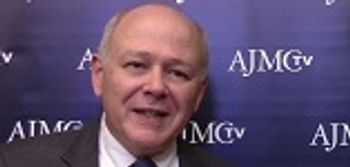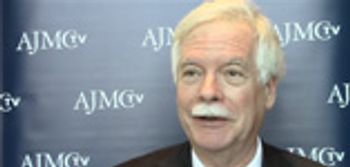
A well-functioning healthcare system must be coordinated, efficient, cost-effective, and goal-oriented. Unfortunately, these words don’t summarize healthcare services in the United States.

A well-functioning healthcare system must be coordinated, efficient, cost-effective, and goal-oriented. Unfortunately, these words don’t summarize healthcare services in the United States.

What we're reading, November 28, 2016: The GOP is considering reforms to Medicare and Democrats are gearing up for a fight; the IRS will send letters to try to sign more people up for Obamacare; and the abortion rate reaches the lowest level in decades.

On average, many families are spending a larger share of their income on healthcare than they were prior to 2010. That is because median incomes, despite their recent surge, have not kept pace with healthcare costs.

Over the past 4 years, search interest for "urgent care" has risen steadily, while search interest for "hospital" has slowly declined.

The general stigma and bias circulating obesity hinders the ability to improve the patient’s health, explained Ted Kyle, RPh, MBA, principal at ConscienHealth. With number of individuals with obesity, patients, physicians, and payers can’t afford to think of obesity as a purely cosmetic condition.

There is significant uncertainty surrounding the healthcare system’s future in 2017 under a Republican Congress and President, but it’s unlikely that the Affordable Care Act will be repealed without some replacement that accommodates the individuals newly covered by it, said Robert W. Carlson, MD, CEO of the National Comprehensive Cancer Network.

The 5th Annual Patient-Centered Oncology Care Meeting closed out with a panel discussion with an eye on the future. Donald Trump's surprise election has caused turmoil in the healthcare industry as the Affordable Care Act seems certain to be repealed at least in part. However, the move to value-based care will likely continue as planned.

The 5th annual Patient-Centered Oncology Care® (PCOC) meeting, hosted by The American Journal of Managed Care, November 17-18, in Baltimore, Maryland, concluded with a panel discussion on the future of oncology care in 2017. The panelists concurred that value-based payment is here to stay despite the imminent changes in healthcare.

What we're reading, November 22, 2016: Virginia declares opioid addiction a public health emergency; House calls for a pause of ongoing Obamacare lawsuit; and Anthem-Cigna antitrust trial begins.

Medicaid policies that require patients to undergo counseling in order to receive medications to quit smoking, in fact end up affecting the use of these medications, according to a new study.

President-elect Donald J. Trump’s upset win almost certainly means the end of the Affordable Care Act (ACA) as we know it, but experts who spoke at Patient-Centered Oncology Care Thursday and Friday said the movement toward value-based payment will continue. The fifth annual meeting, presented by The American Journal of Managed Care, took place in Baltimore, Maryland.

This week, the top managed care news included president-elect Donald Trump outlining parts of Obamacare he would be willing to keep, lawmakers confirming they still want to pass the 21st Century Cures Act, and the FDA held a 2-day hearing on off-label use.

How receptive Americans are to certain public health initiatives to improve personal and community health varies a lot depending on the beliefs they hold regarding government involvement and health.

Uncertainty was the theme of the day during the 21st annual "Wall Street Comes to Washington" roundtable, hosted by the Leonard D. Schaeffer Initiative for Innovation in Health Policy.

What we’re reading, November 15, 2016: retail health clinics are not associated with decreased emergency department visits; House Speaker Paul Ryan will push for Medicare reform along with repeal of the Affordable Care Act; screening of donated blood finds just a fraction of units are contaminated with the Zika virus.

What we’re reading, November 14, 2016: President-elect Donald Trump may keep 2 popular components of the Affordable Care Act; the Department of Veterans Affairs will introduce an online appointment scheduling app; Pfizer drops price of pneumococcal vaccine for humanitarian groups.

Community health centers are serving millions more people than they did before the passage of the Affordable Care Act, and the number of uninsured people they serve has declined only slightly, according to a new study.

Will Vice President Joe Biden's Cancer Moonshot initiative be able to sustain it's momentum in 2017 following the transition in government?

Donald Trump's election stunned many and made the prospect of Obamacare being repealed almost a certainty. Here's a look at 5 key points in Trump’s healthcare reform proposals.

This week, the top stories in managed care all revolved around the election. Donald Trump's presidency means the Affordable Care Act is expected to be replaced; voters in Colorado rejected a single-payer system; medical marijuana was passed in 4 states; and taxes for soda and tobacco had mixed responses from the states.

What we're reading, November 11, 2016: Medicare premium increases lower than expected for high earners; HHS' Office of Inspector General will increase pharmaceutical oversight; and a study on the safety of mail-order abortion pills.

The ban on insurers using pre-existing conditions to deny coverage is hugely popular with voters in both parties.

What we're reading, November 10, 2016: right-to-die supporters start eyeing the next states; healthcare winners and losers after the election; and women are promoting birth control access before the Affordable Care Act is dismantled.

By a large margin, voters in Colorado defeated a proposal to replace the Affordable Care Act with a single-payer system in the state.

As the Republicans retained control of both the House and the Senate and Donald J. Trump was declared the next president of the United States, it became abundantly clear that President Barack Obama’s landmark healthcare reform legislation was in grave danger.

259 Prospect Plains Rd, Bldg H
Cranbury, NJ 08512
© 2025 MJH Life Sciences®
All rights reserved.
